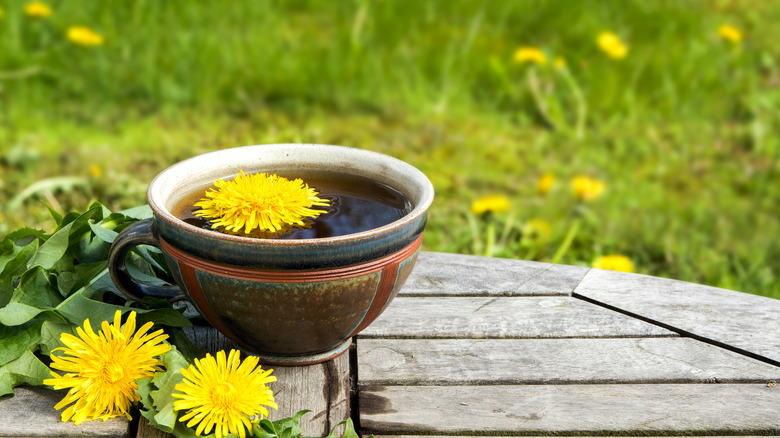If you’re the proud owner of a yard, you’ve probably been conditioned to view the arrival of dandelions in your lawn with a sense of dread and foreboding. After all, as weeds go, they’re one of the more tenacious ones. However, while they are hardy and fast-growing, dandelions can do a lot to support biodiversity and actually keep your yard healthier. Because they support pollinators, aerate soil, and help keep neighboring plants fed with nutrients and vitamins, seeing a flash of yellow in your yard might not be the harbinger of doom you’ve come to expect.
Their ability to drive taproots deep into the soil makes them difficult to completely eliminate, and the fluffy white seeds we’ve all made a wish on at some point are as good at spreading around as they look. Just one plant can produce up to 10 flower heads, which in turn can hold about 200 florets each, meaning each plant is capable of dispersing thousands of seeds around your yard. But before you reach for the weed killer, you should consider that not all weeds are created equal, and the dandelion is one of many weeds that have a secret benevolent side.
Good for gardens

Part of what makes dandelions so annoying to remove — their deep and hardy taproot systems — is also what can make them such an asset to your yard. When these roots dig into the dirt and spread out, they can help to break up the soil, allowing it to aerate so that other plants’ roots can get more oxygen. The loosened soil also lets earthworms more easily pass through and provide their own nutrients to the plants.
Because dandelions’ roots are so extensive, they can also help hold the soil together, keeping it from eroding in harsh weather. The broad, jagged leaves of the dandelion plant, while they can be considered unseemly, can also do the same job as mulch, shielding the soil below from the sun and helping it retain much-needed moisture.
Dandelions also have a very high vitamin content — they’re chock full of potassium, iron, magnesium, and calcium, among others. That means the same reason they’re great for tea makes them a healthy choice for your yard as well; whenever a dandelion plant dies and decomposes, that nutrient-rich matter seeps into the soil and can nourish other plants nearby.
Great for wildlife
In addition to being helpful for fellow plants, dandelions are also a favorite for many pollinators. Around 100 species of insects love to munch down on dandelion flowers, in addition to birds and small wildlife that feast on the seeds and leaves. One all-star pollinator, the hummingbird, will even use the fluffy white down of the dandelion to waterproof its nest. By attracting pollinators to your yard, you’re encouraging them to spread pollen from other places they’ve been, helping contribute to the area’s biodiversity. Your choice to make peace with the dandelions, or at least to refrain from using harsh chemicals to kill them, also ensures that all the animals and insects that feed on them won’t end up accidentally consuming weed killer.
If you’ve got chickens, dandelions can do even more for you. Backyard chickens love a good dandelion salad; those rich vitamins will even increase the nutrient content in their egg yolks. On top of that, the scratching and pecking the chickens do while they’re enjoying their snack can provide additional soil aeration, and any waste they produce while eating can further benefit the richness of the soil.